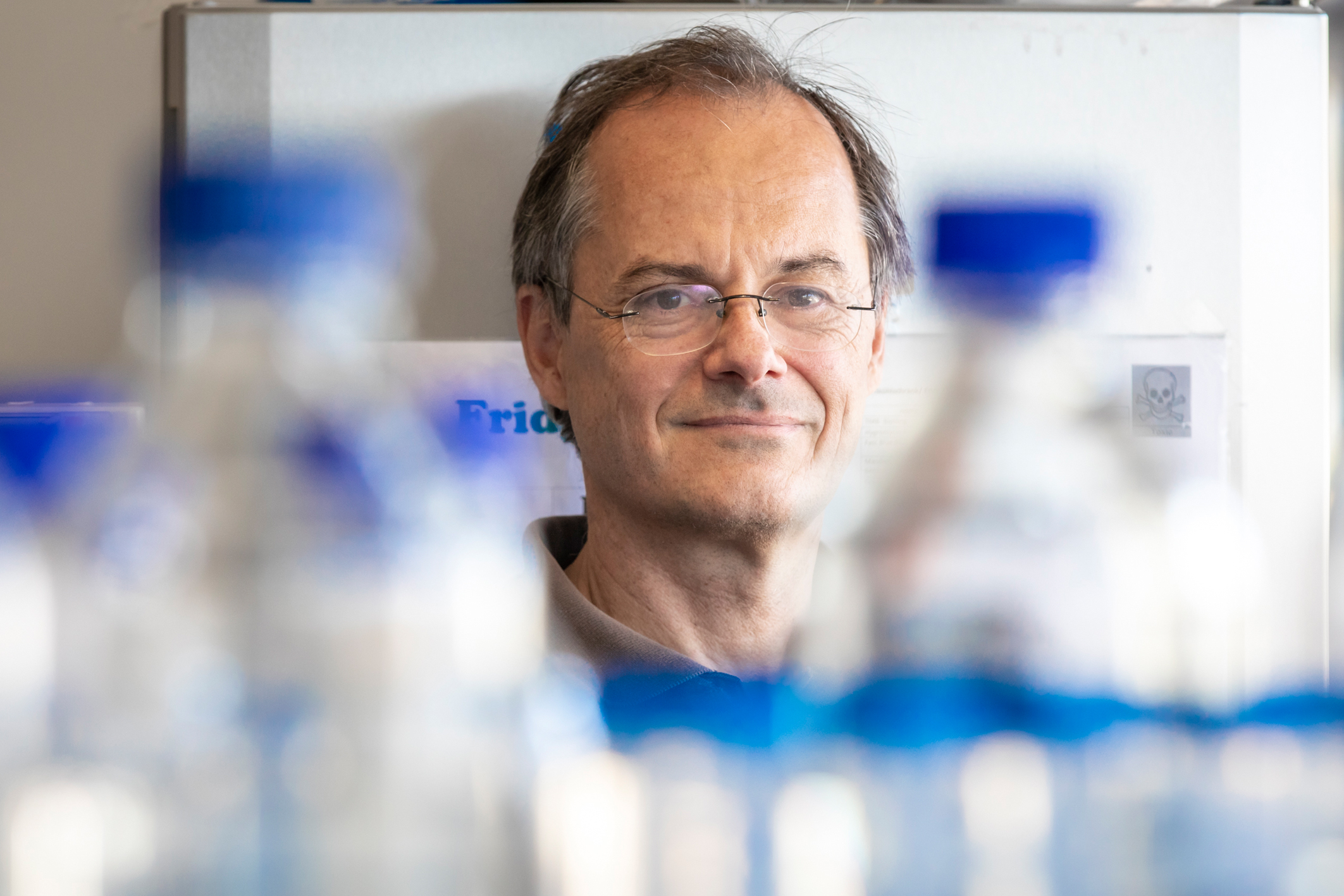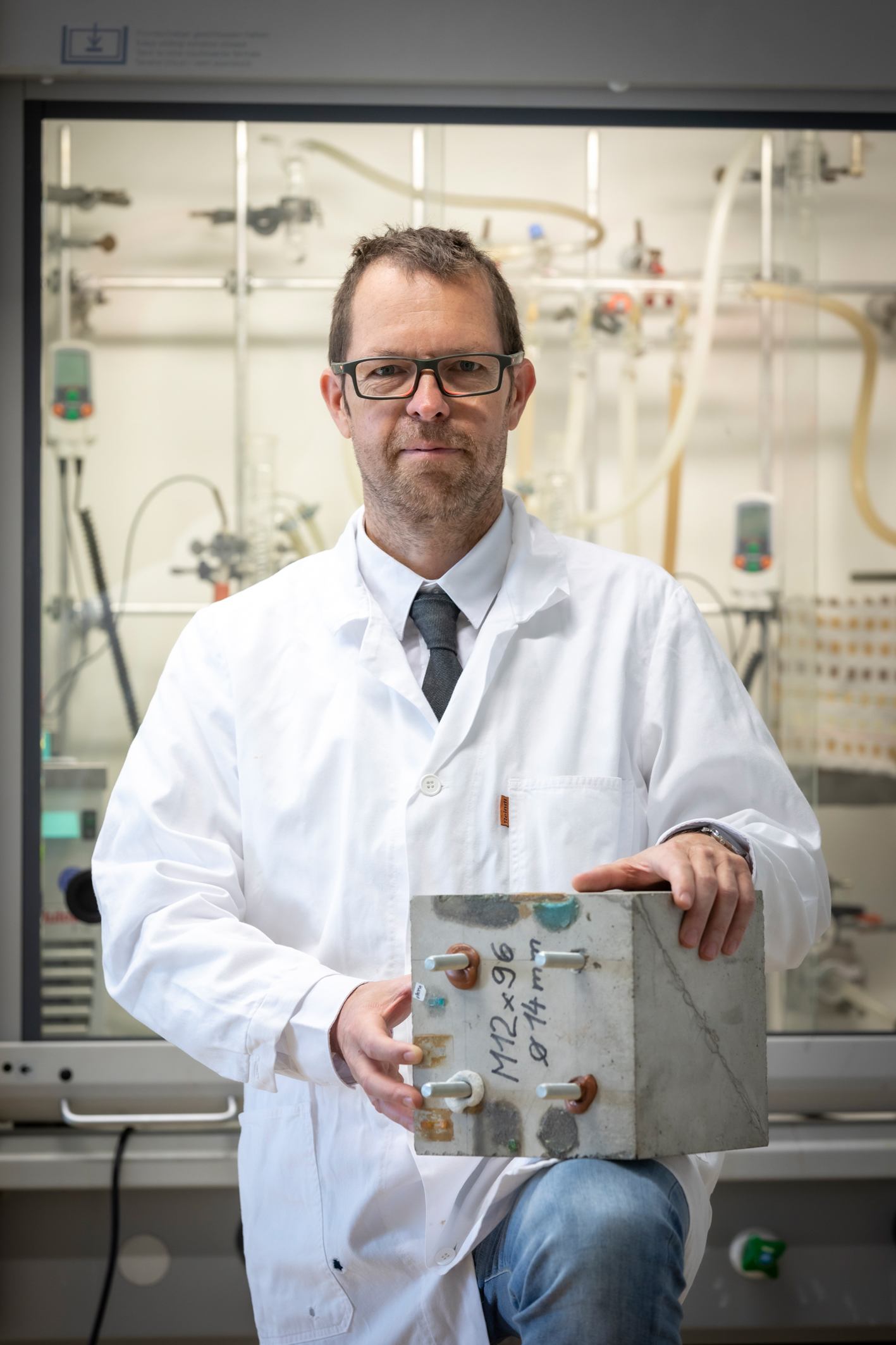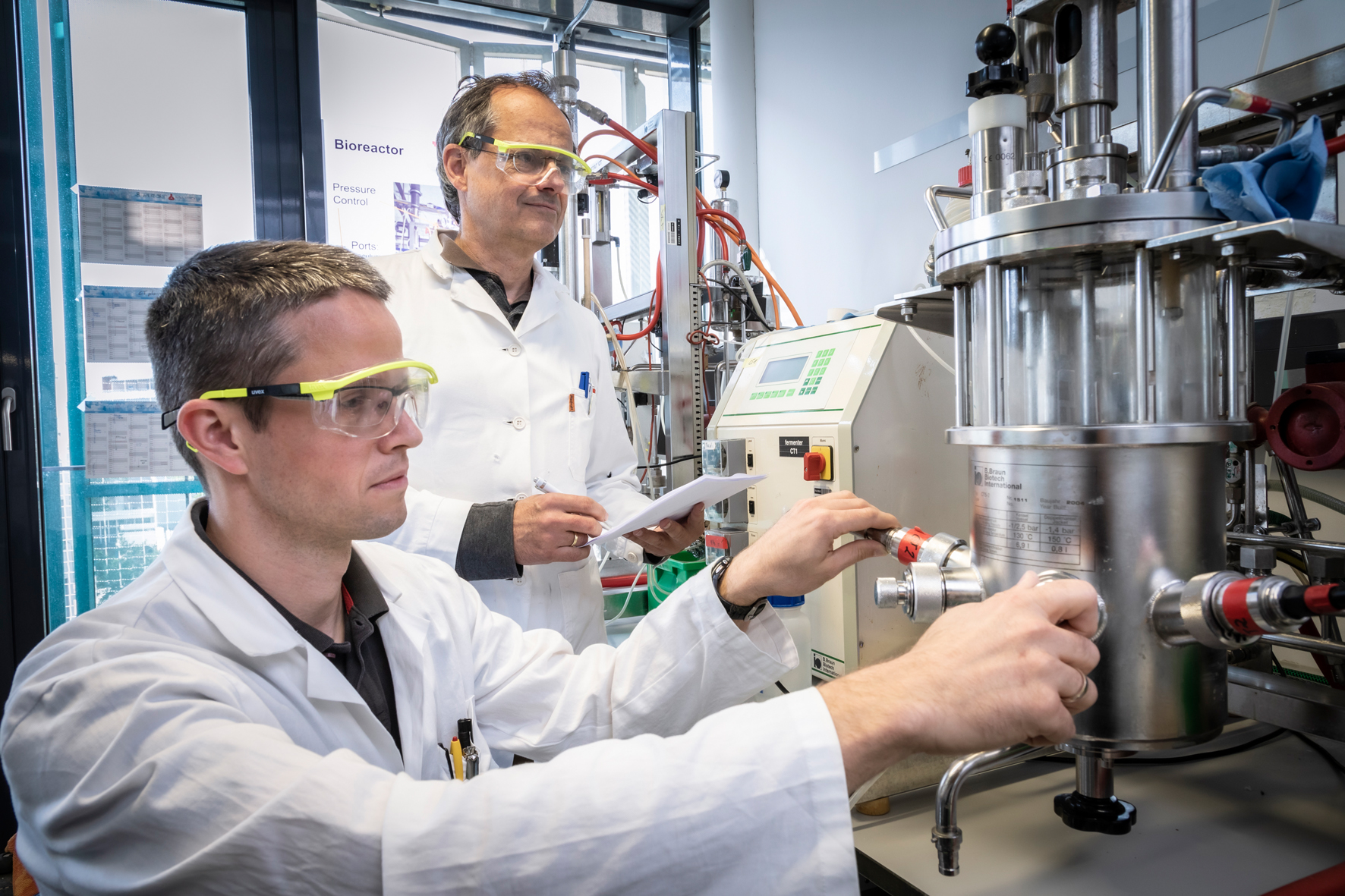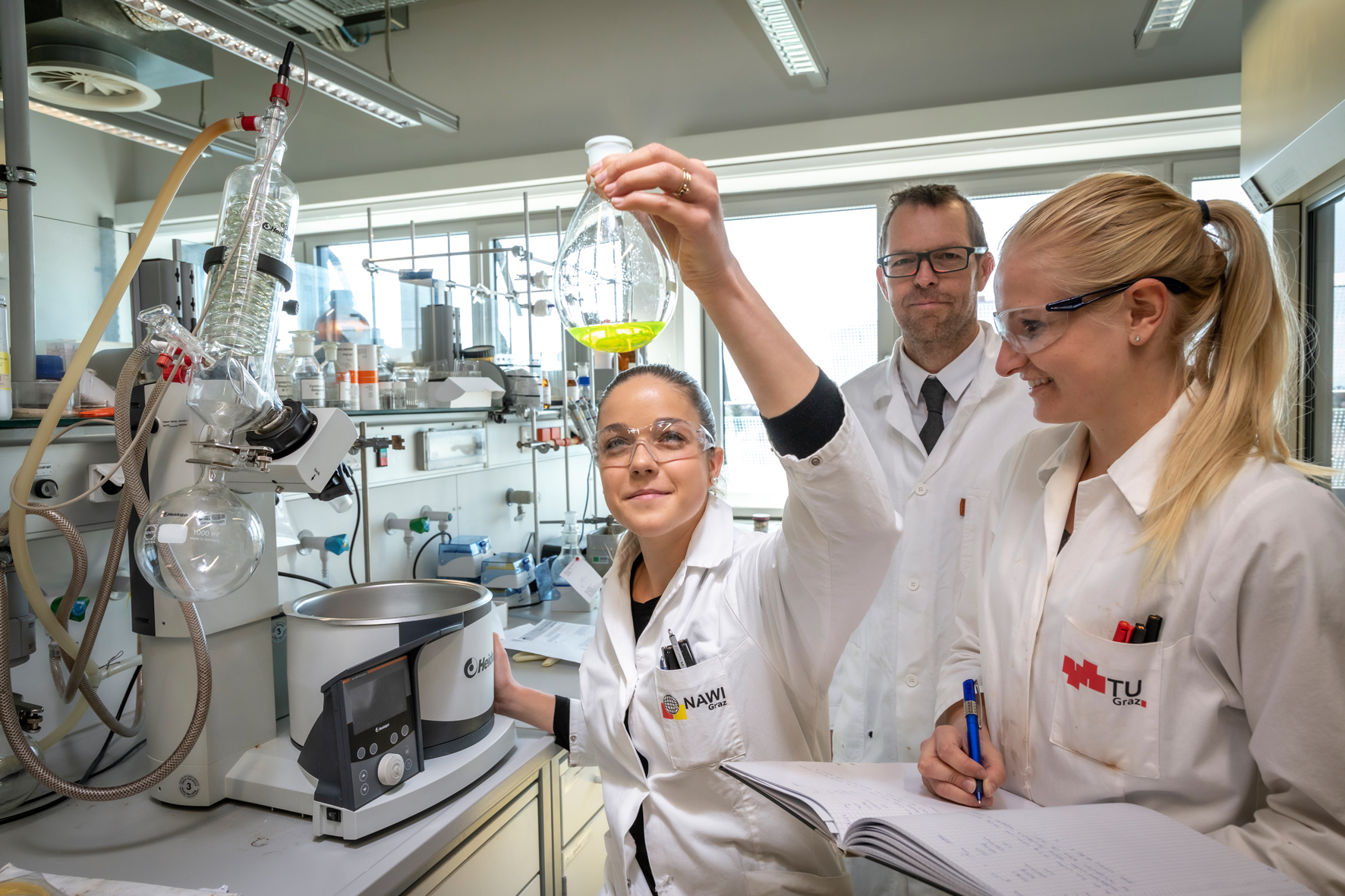Two new CD labs for TU Graz
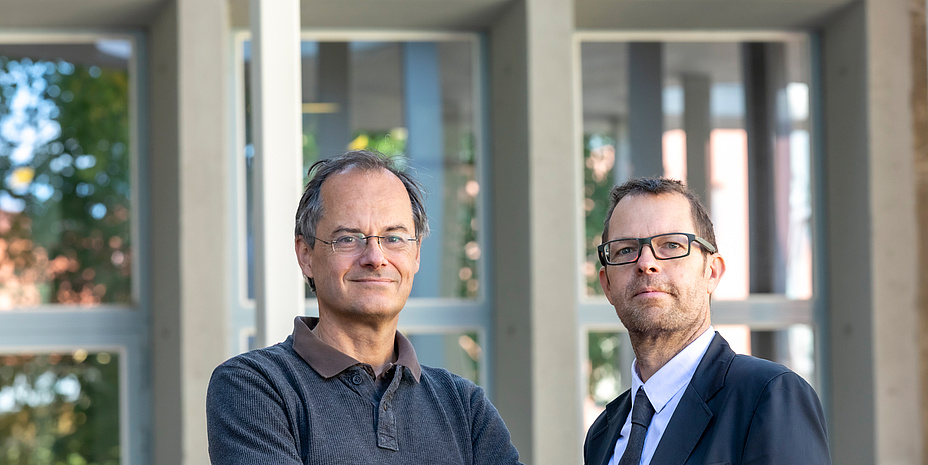
Pictures to download at the end of the text
With the opening of two new CD labs on 24th of September, TU Graz is once again acting as an interface between science and industry. The pharmaceutical company Novo Nordisk, Sesam-Biotech GmbH and Biogrammatics are company partners of the CD Laboratory for Innovative Pichia Pastoris Host and Vector Systems, which under the leadership of Anton Glieder is investigating basic biological mechanisms of the yeast species Pichia pastoris. The results should lead to higher quality enzymes and biopharmaceutical proteins being produced at a lower price. In the CD Laboratory for Organocatalysis in Polymerisation, laboratory head Christian Slugovc and his team are working together with the companies Allnex and Hilti to produce high-quality plastics using alcohols in a more cost-effective and environmentally friendly way. The participating companies are jointly financing the seven-year research in the Christian Doppler labs along with public funds. The research budgets amount to a total of 1.9 million euros (CD lab for Innovative Pichia Pastoris Host and Vector Systems) and 1.4 million euros (CD lab for Organocatalysis in Polymerisation). The most important public funding source is the Federal Ministry of Digital and Economic Affairs (BMDW).
The Economic Ministry promotes application-oriented basic research
“Whether better and cheaper medicines or more environmentally friendly plastics – these two CD labs make a contribution to the quality of life and competitiveness of the location,” emphasizes Elisabeth Udolf-Strobl, Federal Minister of Digital and Economic Affairs. “The efficient use of resources is becoming an increasingly important cost factor in production, which is why innovative methods are needed to gain a decisive advantage over the competition. Location-relevant research is the key for our companies and here the close networking with excellent institutions such as TU Graz helps us.”
Win-win situation for all concerned
Altogether, eleven CD labs are currently active at TU Graz, in which researchers from the University cooperate intensively with business partners. "Research cooperations with industry and business are part of our everyday life as an entrepreneurial university. In this regard, I am extremely grateful to our researchers and their corporate partners for their ongoing efforts to establish new CD labs. Both sides benefit from this funding model. With this support, our scientists can carry out basic research at a high level, secured for the long term. Companies can incorporate the acquired knowledge directly into the development of new products and processes," says TU Graz Rector Harald Kainz.
Details about the two new CD labs
CD Laboratory for Innovative Pichia Pastoris Host and Vector Systems
Head: Anton Glieder
Corporate partners: Novo Nordisk A/S, Biogrammatics, Inc., SeSaM-Biotech GmbH
Biopharmaceutical drugs are mostly produced using animal cell cultures and coli bacteria (Escherichia coli), while cheap enzymes often originate from filamentous fungi. This is a well known and proven manufacturing method, which has been used for decades. However, it is caught between the necessary high complexity of the target proteins on the one hand and a cost-effective and simple production on the other. This conflict could be resolved with the help of Pichia pastoris. The yeast species has the potential of combining the three essential factors in the production. They are as easy to cultivate as Escherichia coli, as efficient as filamentous fungi and as complex as mammals in terms of post-translation processes. For this purpose, the mechanistic principles in existing and emerging Pichia pastoris expression strains must be clarified within the framework of the CD lab supported by Dr. Julia Feichtinger from Medical University of Graz. In addition, laboratory head Anton Glieder and his team are designing and developing new generations of simple and stable DNA vectors together with company partners. This should provide the yeast with the necessary genetic information for the production of pharmaceutical proteins without having to change methods or systems. In the long term, this will enable the production of inexpensive biopharmaceuticals and new technical enzymes.
This CD lab is anchored in the Field of Expertise “Human & Biotechnology”.
CD Laboratory for Organocatalysis in Polymerization
Head: Christian Slugovc
Corporate partners: Hilti AG, Allnex Austria GmbH
The focus of this CD lab is on the cost-effective, environmentally friendly and at the same time precise and reproducible production of high-quality plastics, which are used, for example, for bonding, coating or protection against corrosion. Together with the company partners, researchers at TU Graz are looking for ways to replace toxic and foul-smelling sulphur or nitrogen compounds as well as toxic metal compounds currently used in plastics production with more readily available, cheaper and less toxic alcohols. So far, such experiments have failed due to the low reactivity of alcohols, which – unlike thiols or amines – only react at high temperatures. One way of allowing alcohols to react under milder conditions is by organocatalysis. In this method, organic materials are used to accelerate chemical reactions. To this end, the CD lab is now advancing the basics and knowledge of the activation of alcohols, developing tailor-made organocatalysts and investigating the properties of alcohol-based plastics in fastening technology and corrosion protection.
This CD lab is anchored in the Field of Expertise “Advanced Materials Science”.
Active CD labs at TU Graz
- CD Laboratory for Innovative Pichia Pastoris Host and Vector Systems
- CD Laboratory for Organocatalysis in Polymerization
- CD Laboratory for Location-Aware Electronic Systems
- CD Laboratory for Direct-Write Fabrication of 3D Nano-Probes
- CD Laboratory for Mass Transport through Paper
- CD Laboratory for Quality Assurance Methodologies for Autonomous Cyber-Physical Systems
- CD Laboratory for Design of High-Performance Alloys by Thermomechanical Processing
- CD Laboratory for Model-Based Control of Complex Test Bed Systems.
- CD Laboratory for Brushless drives for pump and fan applications
- CD Laboratory for Fiber Swelling and Paper Performance
- CD Laboratory for Semantic 3D Computer Vision
Kontakt
Anton GLIEDER
Ao.Univ.-Prof. Mag.rer.nat. Dr.rer.nat.
TU Graz | Institute of Molecular Biotechnology
Tel.: +43 316 873 4074
a.glieder@tugraz.at
imbt.tugraz.at
Christian SLUGOVC
Assoc.Prof. Dipl.-Ing. Dr.techn.
TU Graz | Institute of Chemistry and Technology of Materials
Tel.: +43 316 873 32280
slugovc@tugraz.at
ictm.tugraz.at



